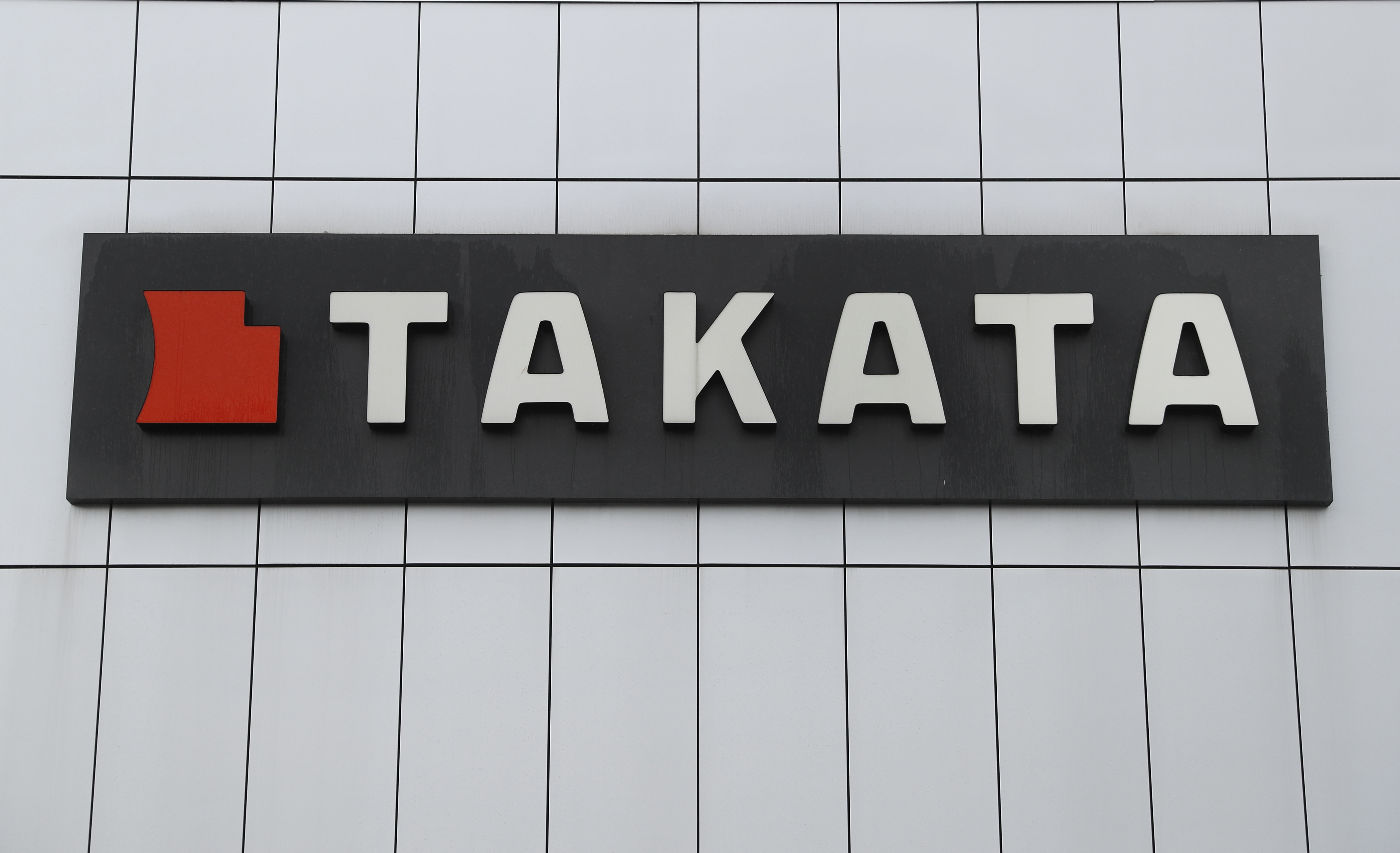
Report says 16.7M faulty Takata air bags still on US roads
DETROIT (AP) — More than three years after the government took over management of recalls involving dangerous Takata air bag inflators, one third of the recalled inflators still have not been replaced.
That’s according to an annual report on the recalls released late Friday by the government and a court-appointed recall monitor.
The report touts progress made this year by 19 automakers involved in the recalls, with recall repair rates across all companies increasing 30 percent during the year, according to the National Highway Traffic Safety Administration.
But the report by monitor John Buretta says 16.7 million faulty inflators out of 50 million under recall have yet to be replaced. And 10 million more inflators are scheduled to be recalled in January.
Safety advocates said the completion rate should be far higher given the danger associated with the inflators.
The Takata devices use the chemical ammonium nitrate to create a small explosion that inflates air bags. But inflators can explode with too much force, blowing apart a metal canister and hurling shrapnel at drivers and passengers. At least 23 people have been killed worldwide and hundreds injured due to the problem. The recalls forced Takata to seek bankruptcy protection and sell most of its assets to pay for the fixes.
The inflators grow more dangerous as they get older because ammonium nitrate deteriorates due to high humidity and cycles from hot temperatures to cold. The most dangerous inflators are in areas of the South along the Gulf of Mexico that have high humidity.
“More exposure over more time to high heat and humidity further degrades the Takata inflator’s phase-stabilized ammonium nitrate compound, making it more porous, more volatile and more prone to transform from a life-saving device to a life-threatening,” the report says.
Jason Levine, executive director of the nonprofit Center for Auto Safety, said it’s taking too long to replace all of the inflators.
“The numbers speak for themselves: In a matter of weeks there will be over 25 million unrepaired recalled Takata air bag inflators remaining on the roads, 10 years after this process started and three years after NHTSA was put in charge of the recall,” he said.
Three years ago, NHTSA started to get consent orders from Takata and automakers to speed up repairs and hold them accountable, “except NHTSA refuses to actually enforce the orders, thus stuffing another gift in the stockings of the auto industry,” Levine said.
Levine and Rosemary Shahan, president of Consumers for Auto Reliability and Safety, said the agency tried to hide the report by releasing it late on a Friday before Christmas. “It’s embarrassing,” Shahan said. “They have to put out the report, so this is when they do it to bury it,” Shahan said.
In a statement, NHTSA said it is concerned about the number of unrepaired inflators “and mindful of the progress being made by many manufacturers to track down vehicle owners and spur repairs, especially for older vehicles that pose the highest safety risk yet are most difficult to locate.”
NHTSA and the monitor are urging people to go to https://www.nhtsa.gov/recalls or www.AirbagRecall.com to find out if their air bags have been recalled. Owners will need to key in their 17-digit vehicle identification number.
The 54-page report said that automakers are making strides with sophisticated techniques to reach consumers such as home visits and post cards in different languages. Some even will send repair teams to the owners’ homes to replace the inflators. The report also says that more than 7.2 million defective inflators have been fixed during the past year.
Among the most dangerous inflators in the highest-risk areas, the number of unrepaired inflators was cut in half in the past year, according to the report.
“Manufacturers should continue to implement the key strategies for recall success, work to develop new strategies aimed at tackling the complex challenges presented by the Takata recalls and collaborate even more with one another to maximize the efficiency and efficacy of recall efforts,” the report said.
.
The Western Journal has not reviewed this Associated Press story prior to publication. Therefore, it may contain editorial bias or may in some other way not meet our normal editorial standards. It is provided to our readers as a service from The Western Journal.
Truth and Accuracy
We are committed to truth and accuracy in all of our journalism. Read our editorial standards.
Advertise with The Western Journal and reach millions of highly engaged readers, while supporting our work. Advertise Today.












